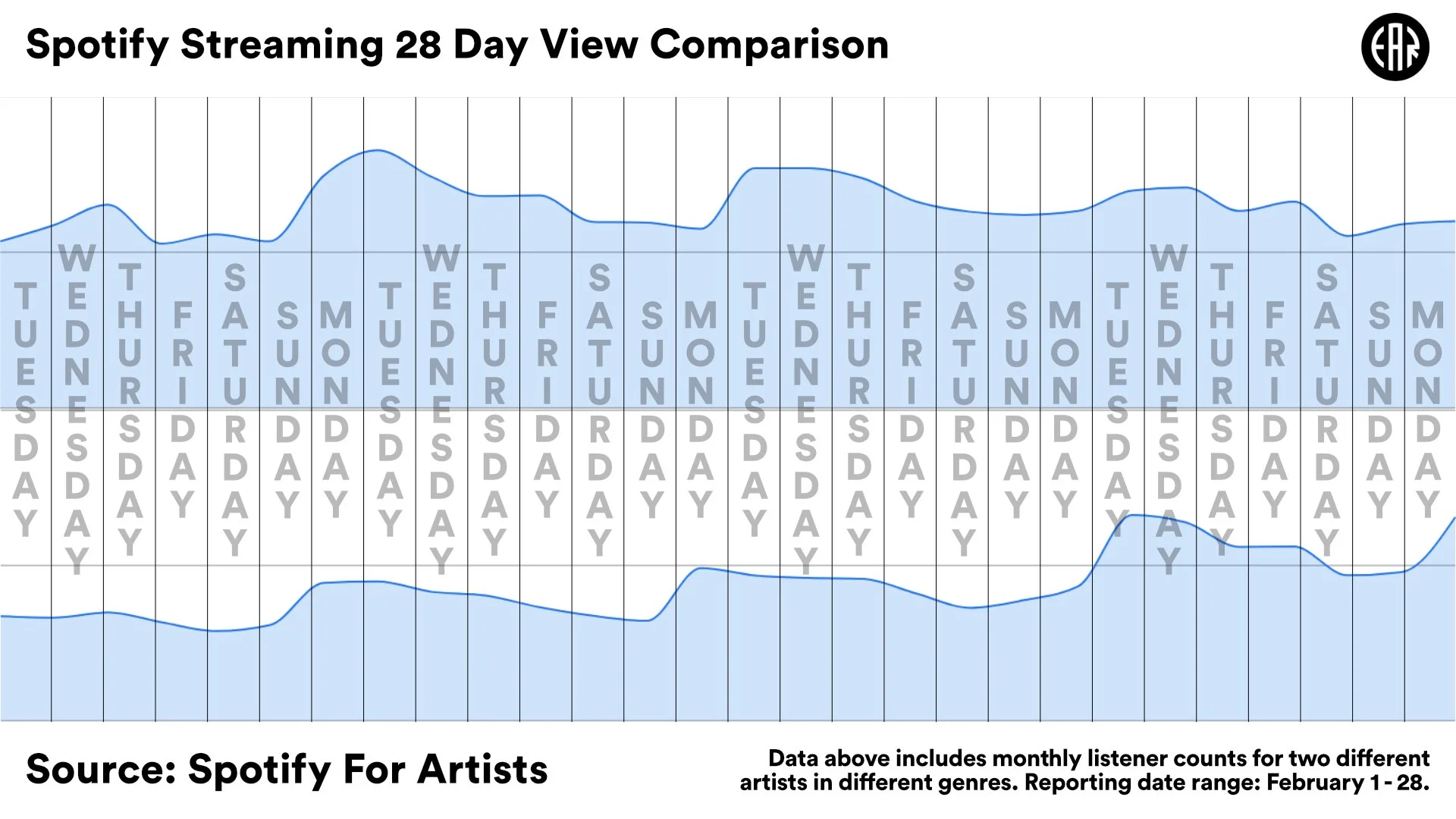What Day Should You Release Music? Maybe Not Friday
In 2015, the International Federation of the Phonographic Industry (IFPI) put into effect that Friday’s would be the standard Global Release Day. Also known as New Music Fridays, the change in day allowed for more accurate reporting for tracking album sales on an international scale. Before July 11, 2015, countries like the United States and Canada would release music on Tuesdays, United Kingdom/France on Monday, and Friday for Germany and Australia. For Billboard charts, this was a massive help for tracking album sales, as releasing on Friday allowed for the maximum reporting time (Friday-Thursday), and thus, more accurate reporting.
But if you’re more focused on getting exposure, and not charting on Billboard, is Friday really a good day to release music? According to many DSP’s, music articles, and (since 2015) the IFPI, this may be the case, however, disregarding the Global Release Day norm may actually prove to have more benefits. The following will break down our reasoning for ditching the Friday release train.
1. Oversaturated release time
With thousands of songs uploaded to platforms like Spotify and Apple Music every single day, it can be difficult for musicians without a dedicated audience to push through the noise of thousands of competing artists. In 2021, it was reported that around 60,000 songs are uploaded to Spotify every day (that’s about 1 song per second), with Fridays having an influx of songs. Now considering the fan perspective, the artists they follow may all be from similar genres, and whomever gets their release announcement out first takes the cake.
By moving the release date to another day, the competition with major label releases decreases significantly. This allows for more organic traction and discovery, leading to algorithmic support and a higher rate of exposure.
2. Streaming and weekly habits
For many of the artists we manage, a common trend starts to emerge with an increase in listeners and streams. No matter the artist or genre, a consistent dip occurs during the “weekend” days. For example, say you release a song and it’s added to a bunch of listener libraries/playlists, and continues to grow over the next few weeks. Consistently, we see a rise and fall of this progression starting on Monday, increasing up to Thursday, and then a drop on Friday to Sunday. No matter the week, this wave-like pattern follows the routine rhythm of weekly work schedules.
Considering this data, the logical approach is to allow your song to gain the most traction leading up to the weekend dip, rather than starting in a dip. With less people on social media, streaming services, and traveling to and from work Friday-Sunday, the data suggests the best release days are Tuesday-Thursday.
3. Pre-Saves, emails, and notifications
Pre-release campaigns have proved to help songs gain more traction especially with a growing fanbase. TikTok thankfully has changed this process slightly, and has allowed musicians at any level to promote their music organically. In a single day, many success stories have reported singles accumulating 1000s of pre-saves with a lower number of followers on the social media platform. Depending on the user’s habits, receiving any type of notification (pre-save, direct message, email, SMS, etc) may be ignored or missed during a busy weekend stretch. It makes sense to plan your releases with this data in mind by tracking metrics like most active time, most active days, website visits, clicks, and engagement rate. For example, if your analytics suggest more fans interacting with your content on Wednesday, promoting a release that day may prove to be more successful.
In summation, if your goal is to report your album sales to organizations like Billboard for a chance to be featured in their charts, Friday works best for tracking sales between Friday-Thursday. If this is not the case, we recommend releasing singles between the days of Tuesday - Thursday, and taking advantage of weekday promotions. In any case, you should never stop promoting your music, whether that be with “do-it-yourself” marketing practices, paid advertising approaches, or a waterfall release schedule.

